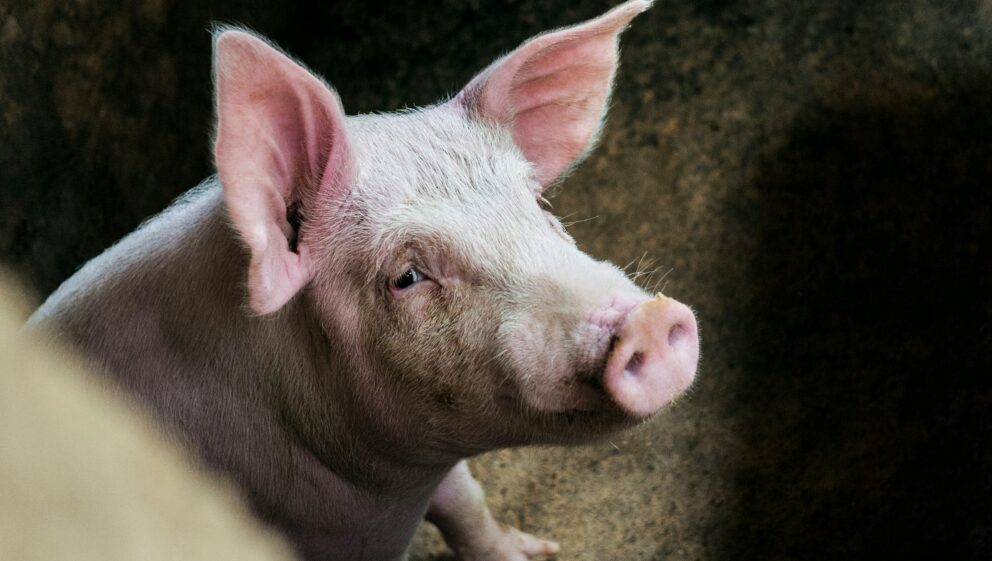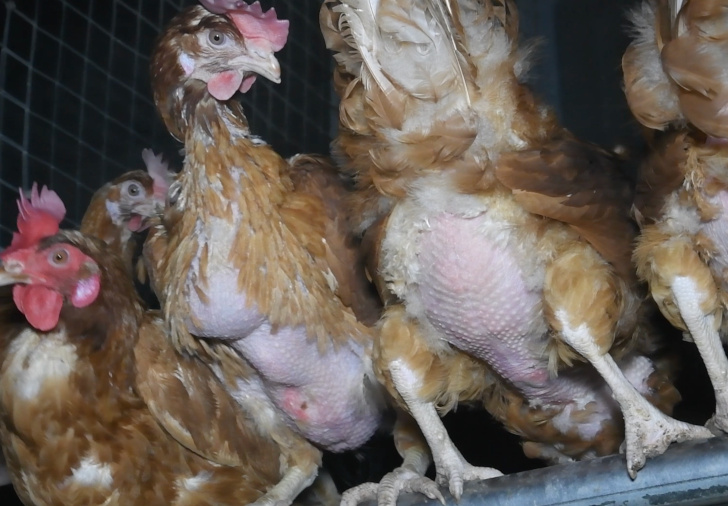The consultation sets out proposals for the labelling of animal products to clearly state their origin and the production method used.
But this misses the point that food labelling already does – and always will – fail animals.
Currently, eggs are the only animal product that must display the production method used, whether from caged, barn, or free-range chickens. And yet, these labels have been consistently shown to be misleading when it comes to animal welfare.
For example, ‘barn’ eggs come from chickens who are unlikely to ever see daylight. Free-range hens are also kept in barns but must typically have some access to the outdoors via small pop-holes – although in huge, crowded barns, these holes are inaccessible for many birds. Due to outbreaks of avian flu, the government may allow producers to retain a ‘free-range’ label despite the chickens being kept indoors. Even on ‘organic’ farms, animals can be kept in sheds of up to 3,000 birds making it impossible to ensure the wellbeing of every individual.
Then there is the physical toll that egg-laying takes on these delicate animals: bone fractures and foot burns (caused by a build-up of excrement) are both common throughout the egg industry.
Egg labelling has been mandatory since 2004, but it hasn’t improved life for these chickens.



